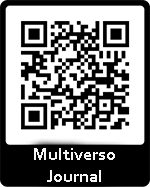Epistemological Aspects of the Geopolitics of Human Rights: Current Challenges in the 21st Century
DOI:
https://doi.org/10.46502/issn.2792-3681/2024.7.1Keywords:
critical thinking, geopolitics of human rights, human rights postdoc, international challenges in the 21st century.Abstract
Connecting the geopolitical gaze, which is usually loaded with pragmatism and is the responsibility of international policy makers or academic elites driven by scientific interests, is not a simple task. In this general purpose, through a documentary-based qualitative research design, close to critical geopolitics and dialectical hermeneutic philosophy, the central objective of this essay was to describe, roughly, some epistemological aspects of the geopolitics of human rights in the framework of the main current challenges that characterize the development of the world order in force in the 21st century. The results obtained allow us to conclude that, in any geopolitical and geostrategic perspective, the defense of human rights must be a global priority and, consequently, it is the responsibility of all actors to work together to guarantee their protection and promotion in an increasingly complex and changing world context, marked by the entropic forces of seemingly irreconcilable interests, divergent cultural identities and unique worldviews that identify each civilization and that, while foreshadowing the clash of civilizations, undoubtedly also open doors for the achievement of new consensuses.
References
Arbeláez-Campillo, D., & Villasmil Espinoza, J. (2020). Escenarios prospectivos de un nuevo orden internacional que se vislumbra luego de la pandemia COVID-19. Telos: Revista de Estudios Interdisciplinarios en Ciencias Sociales, 22(03), 494-508. www.doi.org/10.36390/telos223.02
Bunge, M. (2005). La ciencia. Su método y su filosofía. Buenos Aires: Debolsillo.
Cabrera Toro, L. (2020). Geopolítica crítica: alcances, límites y aportes para los estudios internacionales en Sudamérica. Foro Internacional, LX (01), 61-95.
Diamond, J. (2007). Colapso Por que unas sociedades perduran y otras desaparecen. Bogotá: DeBolsillo.
Gallardo, F. L. D. (2007). Contribución de la geopolítica crítica a la comprensión de la actual concepción de seguridad. Revista Política y Estrategia, (108), 71-82.
González Tule, L. (2017). Organización del espacio global en la geopolítica “clásica”: una mirada desde la geopolítica crítica. Revista de Relaciones Internacionales, Estrategia y Seguridad, 13(01), 221-238. https://doi.org/10.18359/ries.2864
Human Rights Watch. (2016). Crisis Humanitaria En Venezuela. Nueva York: HRW. https://nrc.org.co/wp-content/uploads/2017/11/venezuela1016sp_brochure_web_0.pdf
Huntington, S. P. (2001). El choque de civilizaciones y la reconfiguración del orden mundial. Buenos Aires: Paidós.
Jiménez, J. J. (2020). La crisis del Estado democrático de derecho. Barcelona: FAES Fundación. https://fundacionfaes.org/wp-content/uploads/2021/09/20200602124232la-crisis-del-estado-democratico-de-derecho.pdf
Losada, R., & Casas, A. (2008). Enfoques para el análisis político Historia, epistemología y perspectivas de la ciencia política. Editorial Pontificia Universidad Javeriana: Bogotá.
Lyotard, J. F. (1989). La condición postmoderna. Informe sobre el saber. Madrid: Catedra.
Martínez, M. (2009). La nueva ciencia Su desafío, lógica y método. México DF: Trillas.
Nussbaum, M. C., & Mosquera, A. S. (2012). Crear capacidades Propuesta para el desarrollo humano. Barcelona: Paidós.
Tovar-Sánchez, G., & Rodríguez-Salazar, L. (2020). Epistemología de la imaginación psicosocial en STEAM. Alternativas conceptuales para afrontar los retos educativos del Siglo XXI. Latin American Journal of Science Education, (7), 1-11. https://www.lajse.org/may20/2020_12039.pdf.
Vasilachis de Gialdino, I. (1999). La construcción de las representaciones sociales Discurso político y prensa escrita. Buenos Aires: Dedisa editorial.
Villasmil Espinoza, J. J (2021). Implicaciones de la inteligencia artificial para la humanidad. Revista de la Universidad del Zulia, 12(32), 4-6. https://doi.org/10.46925//rdluz.32.01
Published
How to Cite
Issue
Section
License
Copyright (c) 2024 Roney José González Virla

This work is licensed under a Creative Commons Attribution 4.0 International License.
The authors who publish in this journal agree to the following terms:
The authors retain copyright and guarantee the journal the right to be the first publication where the article is presented, which is published under a Creative Commons Attribution License, which allows others to share the work prior to acknowledgment of the authorship of the article. work and initial publication in this journal.
Authors may separately enter into additional agreements for non-exclusive distribution of the version of the work published in the journal (for example, placing it in an institutional repository or publishing it in a book), with an acknowledgment of its initial publication in this journal.



















